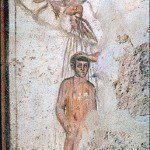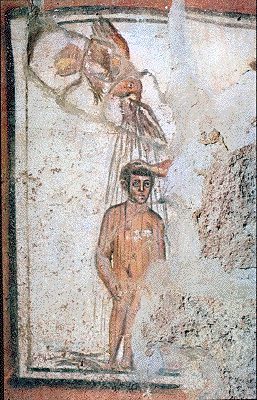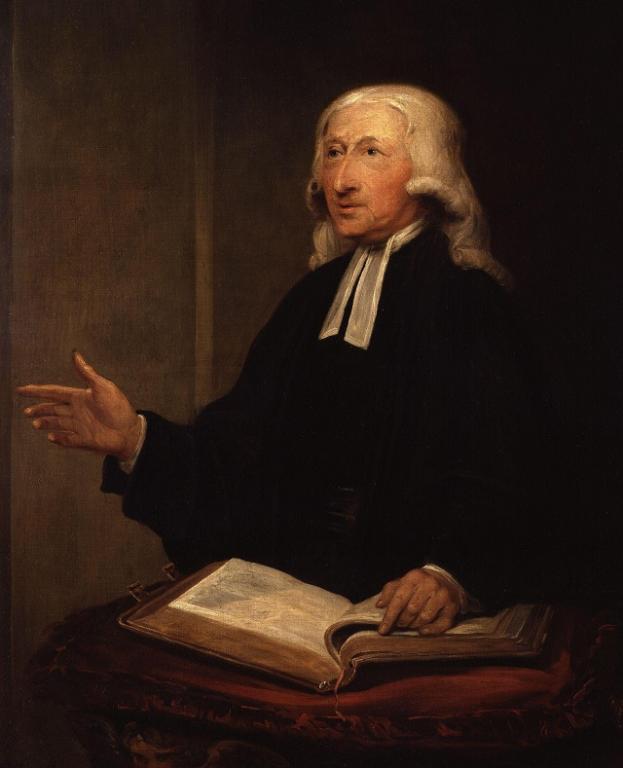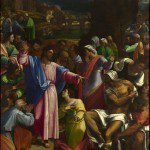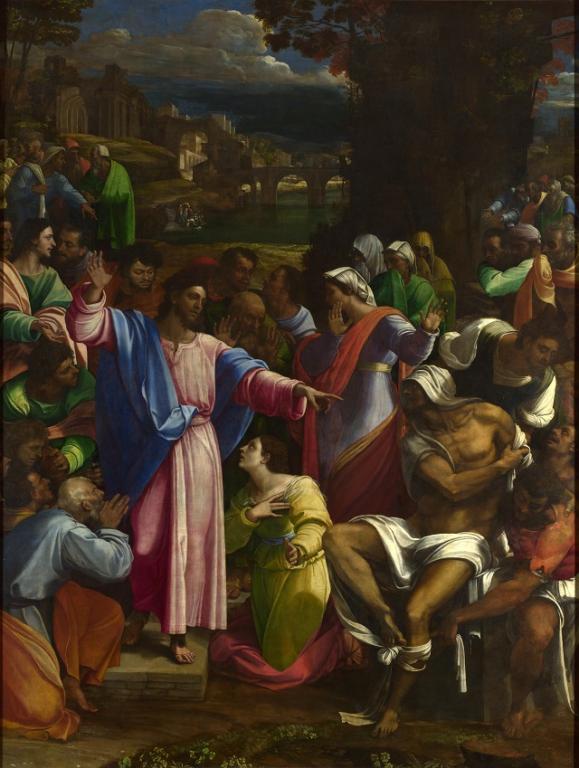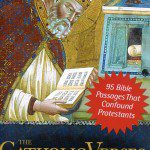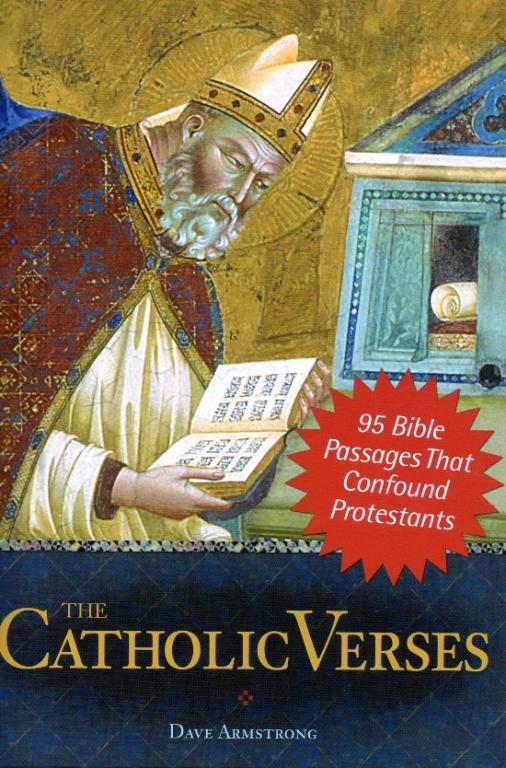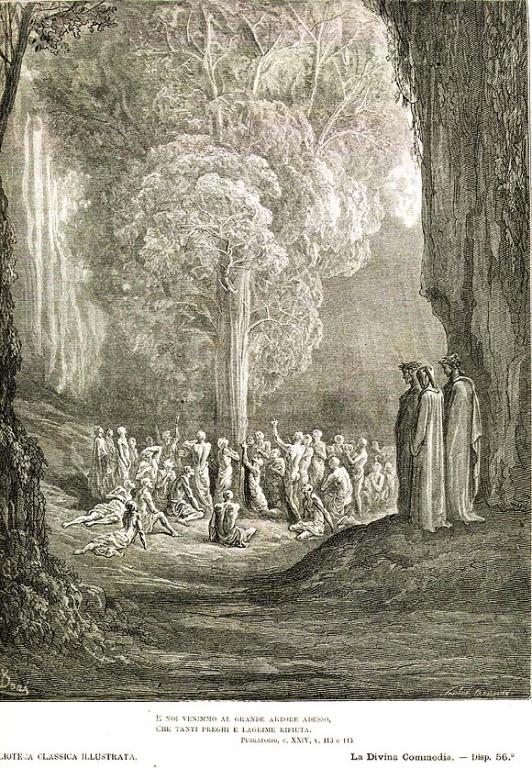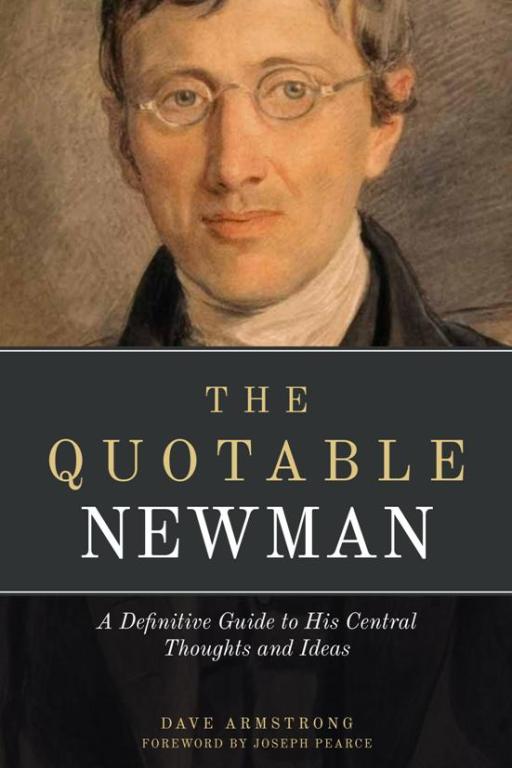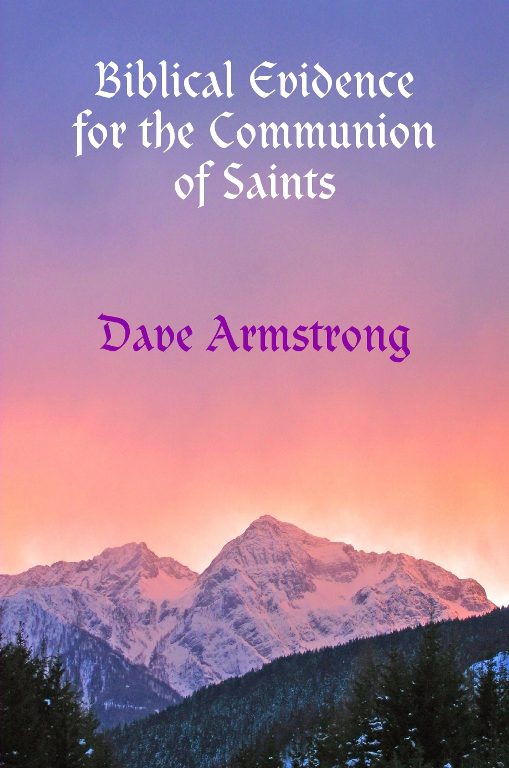In post-NT times, the Christian Fathers down to the later 4th cent. almost all regarded the LXX as the standard form of the OT . . .
(p. 1260)
It should be observed that the Old Testament thus admitted as authoritative in the Church was somewhat bulkier and more comprehensive . . . It always included, though with varying degrees of recognition, the so-called Apocrypha, or deutero-canonical books . . .
In the first two centuries at any rate the Church seems to have accepted all, or most of, these additional books as inspired and to have treated them without question as Scripture. (Early Christian Doctrines, San Francisco: Harper, revised edition of 1978, 53-54)
The West, as a whole, was inclined to form a much more favourable estimate of the Apocrypha . . . For the great majority, however, the deutero-canonical writings ranked as Scripture in the fullest sense. Augustine, for example, whose influence in the West was decisive, made no distinction between them and the rest of the Old Testament . . . The same inclusive attitude to the Apocrypha was authoritatively displayed at the synods of Hippo and Carthage in 393 and 397 respectively, and also in the famous letter which Pope Innocent I despatched to Exuperius, bishop of Toulouse, in 405. (Ibid., 55-56)
The Jews in the early Christian centuries had really two Bibles: (1) There was the Hebrew Bible which does not include the Apocrypha and which circulated in Palestine and Babylon; (2) there was the Greek version (LXX [the Septuagint]) used by Greek-speaking Jews everywhere. Until in quite early times, instigated by the use made of it by Christians against themselves, the Jews condemned this version and made the Hebrew canon their Bible, thus rejecting the books of the Apocrypha from their list of canonical writings, and departing from
. . . the custom of Christian churches which continued with isolated remonstrances to make the Greek OT canon, with which the Vulgate agrees almost completely, their standard. (The International Standard Bible Encyclopedia, General editor: James Orr, Grand Rapids, Michigan: Eerdmans, 1939, five volumes, Vol. 1, “Apocrypha,” 182)
Down to the 4th century, the Church generally accepted all the books of the Septuagint as canonical. Greek and Latin writers alike (e.g., Irenaeus, Tertullian, Cyprian) cite both classes of Books without distinction . . . With few exceptions [St. Jerome and St. Hilary] . . . Western writers (esp. Augustine) continued to consider all as equally canonical . . . At the Reformation, Protestant leaders, ignoring the traditional acceptance of all the Books of the Septuagint in the early church… refused the status of inspired Scripture [to the Apocrypha] . . .”
The Biblical Books received by the early Church as part of the Greek version of the Old Testament, but not included in the Hebrew Bible, being excluded by the non-Hellenistic Jews from their Canon. Their position in Christian usage has been somewhat ambiguous…. In the E. Church opinion varied, and for some centuries the Books continued to be widely accepted; but at the Synod of Jerusalem in 1672 it was decided that Tobit, Judith, Ecclus., and Wisd. alone were to be regarded as canonical. Opinion in the W. was also not unanimous, some authorities considering certain books uncanonical; . . . [footnote 4: The Oxford Dictionary of the Christian Church, pp. 70-71]
1) They also (along with the Hellenistic Jews as a whole) rejected Jesus as their Messiah, so why is it so casually assumed that a Christian has to accept everything that “non-Hellenistic Jews” believe, as if this decides the question, or has some crucial, decisive impact upon it?
*
2) Note that Ankerberg and Weldon deny (over against Kelly’s opinion – see the words cited above, responding to Kelly as mentioned in Norman Geisler’s book) even that the Church of the first two centuries accepted these books as Scripture. The above entry deals with all of Church history, so we must distinguish between that claim about difference of opinions (which is true) and the separate question of what the Church in the first two centuries believed. The Oxford Dictionary of the Christian Church states that this “general acceptance” applied up to the 4th century, or some 300 years (two citations above), and comments on how the early Protestants ignored this fact.
*
3) The fact that the East also accepted some of these books as canonical (and differed as to some with the West) does not resolve the Protestant dilemma of its own authoritative determination of canonicity. It is only Protestants (and not even all of them) who deny the canonicity of all seven deuterocanonical books. I want to know why, and why anyone should accept Protestant authority on this, rather than that of the earliest Christians and the councils of Hippo and Carthage.
*
4) The fact that western opinion was not absolutely unanimous, is not troubling at all to the Catholic, since we don’t expect every individual Father to get everything right. We don’t determine truth by majority vote (though consensus is highly important), but by the authority of councils and popes, in harmony with Holy Scripture. But in this instance, Scripture itself cannot determine its own parameters. Some human authority has to do that, since the Bible was written, collected, and canonized by very human processes. Christians aren’t like Muslims, who claim to have received the Koran whole and entire from Allah. We can’t simply accept everything the Jews passed down to us, since they disagreed amongst themselves, and rejected the central Christian message and the gospel. This is a Christian problem, and one intrinsically involving Tradition. It can’t be resolved by Scripture Alone, in the very nature of the case. And that creates an enormous difficulty indeed for Protestantism, in deciding the true canon. That difficulty, and the constant (desperate) use of circular argument (for lack of anything better) will become very apparent, as I continue to critique this article.
II. Did Any Jews Accept the Canonicity of the “Apocrypha”? Are Ancient Jewish Beliefs on the Canon Certain?
In date of writing, the Books of the Apocrypha derive mostly from the period 300 B.C. – A.D. 100 approx., and mostly from 200 B.C/ – A.D. 70 . . . In this period, though the Canon of the Jewish Scriptures was closed as far as the ‘Law’ and the ‘Prophets’ were concerned, it was still possible for works which came to be known technically as ‘Writings’ to claim the status of Scripture . . . (Ibid., 70)
It should be noted that the contents and form of the inferred original Alexandrian Jewish canon cannot be ascertained with certainty because all extant Greek Bibles are of Christian origin. The Jews of Alexandria may themselves have extended the canon they received from Palestine, or they may have inherited their traditions from Palestinian circles in which the additional books had already been regarded as canonical.
. . . no lists of canonical works and no codices (manuscript volumes), only individual scrolls. For these reasons nothing can be known with certainty about the contents and sequence of the canon of the Qumran sectarians . . . fragments of all the books of the Hebrew Bible (except Esther) have been found . . . The situation is complicated by the presence in Qumran of extracanonical works – some already known from the Apocrypha [note the begged question, but this shows that the article is a “hostile witness” in favor of what I am arguing: viz., that we don’t know enough] . . . Some or all of these additional works may have been considered canonical by the members of the sect.
[T]he men of Qumran have left no statement indicating precisely which of the books represented in their library ranked as holy scripture in their estimation, and which did not . . . what of Tobit, Jubileese and Enoch, fragments of which were also found at Qumran? These were in due course to be reckoned canonical by certain religious groups; were they reckoned canonical by the Qumran community? There is no evidence which would justify the answer ‘Yes’; on the other hand, we do not know enough to return the answer ‘No’. (The Canon of Scripture, Downers Grove, Illinois: InterVarsity Press, 1988, 39-40)
2. Apocrypha, Septuagint, and patristic sources
It seems highly improbable that there was ever any specific enumeration of the books of the canon in Jewish literature generally . . .
From the evidence presented by the Qumran texts it would seem probable that there were several different forms of the canon in existence by the first century of the Christian era, which is in harmony with the rather fluid picture of the pre-Masoretic text as indicated by the Qumran scrolls.
As for the Apostles and Jesus, everyone agrees that they used and cited the Septuagint, which contained the Apocrypha. The earliest Greek manuscripts contain the Apocryphal books interspersed with (not separate from) the others, proving they were part of the early Christian Bible. The Councils of Hippo (393) and Carthage (397) listed the Apocrypha as canonical, along with the other 39 that Protestants accept. Who are Protestants to decide 1100 years later that these Councils erred on some books but not others? The only reason you have the Bible you do is because you inconsistently accept the authority of these Councils as to the Canon (except for the Apocrypha). The late Protestant rejection of these books is largely based on inadequate and arbitrary grounds, as usual: the clear teaching in some of prayers for the dead and the intercession of saints and angels, which had been unbroken Christian (and Jewish) Tradition. This is the same rationale that caused Luther nearly to toss out James and other books, based on his personal aversion to their (Catholic) teachings. Thus, Protestants have “subtracted” from the Bible, rather than Catholics “adding” to it. Yours is the radical and novel innovation (i.e., corruption) not ours. The practice of separating the Apocryphal books from the others dates back no further than 1520, according to The New English Bible (Oxford, 1976, “Introduction to the Apocrypha,” p. iii). And, of course, the original KJV contained it, too. So, again, you are refuted entirely from Protestant sources and the indisputable facts of church history. You ought to be ashamed of yourselves.[footnote 5: Letter of Dave Armstrong to John Weldon, August 20, 1995]
When we think of Jesus and his Palestinian apostles . . . We cannot say confidently that they accepted Esther, Ecclesiastes or the Song of Songs as scripture, because evidence is not available. We can argue only from probability, and arguments from probability are weighed differently by different judges.
We cannot say with absolute certainty, for example, if Paul treated Esther or the Song of Songs as scripture any more than we can say if those books belonged to the Bible which Jesus knew and used.(Bruce, ibid., 41, 50)
III. F.F. Bruce: New Testament Allusions to the “Apocrypha” and Pseudepigrapha
There are, however, several quotations in the New Testament which are introduced as though they were taken from holy scripture, but their source can no longer be identified. For instance, the words ‘He shall be called a Nazarene’, quoted in Matthew 2:23 as ‘what was spoken by the prophets’, stand in that form in no known prophetical book . . . Again in John 7:38 ‘Out of his heart shall flow rivers of living water’ is introduced by the words ‘as the scripture has said’ – but which scripture is referred to? . . . there can be no certainty. (Ibid., 51-52)
Everything depends upon the manner in which the quotation is made. In no case is an Apocryphal book cited by NT authors as “Scripture,” or as the work of the Holy Spirit. (Orr, ibid., 558-559)
[T]here is no instance in the New Testament where any of the writers cited an Apocryphal composition as though they recognized it as inspired Scripture or as in any way connected with matters of spiritual authority. (An Introduction to the Old Testament, Grand Rapids, MI: Eerdmans, 1974, 1186)
[B]oth Judith and Tobit have a number of historical and geographical errors, not because they’re presenting bad history and erroneous geography, but because they’re first-rate pious stories that don’t pretend to be remotely interested with teaching history or geography, any more than the Resurrection narratives in the Gospels are interested in astronomy. Indeed, the author of Tobit goes out of his way to make clear that his hero is fictional. He makes Tobit the uncle of Ahiqar, a figure in ancient Semitic folklore like “Jack the Giant Killer” or “Aladdin.” Just as one wouldn’t wave a medieval history textbook around and complain about a tale that begins “once upon a time when King Arthur ruled the land,” so Catholics are not reading Tobit and Judith to get a history lesson. (Envoy Magazine article, “5 Myths about 7 Books”, March / April 1997)
1) Ankerberg and Weldon’s arguments are not sufficient to overthrow or disprove the Catholic position, due to their many and serious deficiencies and inadequacies as demonstrated above and below.
2) Their arguments do not establish the Protestant position or show that it is superior and more defensible than the Catholic belief.3) Their arguments do not alleviate the logical, epistemological, and “authority” difficulties of the Protestant position. I have already alluded to a number of internal inconsistencies (such as, e.g., the appeal to NT citations as “proof” of the OT canon) along these lines.
The history of canonization.
Because no explicit or reliable traditions concerning the criteria of canonicity, the canonizing authorities, the periods in which they lived, or the procedure adopted have been preserved, no more than a plausible reconstruction of the successive stages involved can be provided.
(Vol. 14, p. 757; this citation, and the one above from the same article, were written by Nahum M. Sama, professor of Biblical Studies at Brandeis University; presumably Jewish)
It was also at Jabneh [aka Jamnia] that the process of canonization, about which there is much uncertainty, but which by every indication began centuries before the Babylonian exile, was brought to completion by the acceptance of the Song of Songs, Ecclesiastes, and Esther (or their retention) within the Canon.
(Judaism, Isidore Epstein, Baltimore: Penguin Books, 1959, 117)
The Jews in the early Christian centuries had really two Bibles: (1) There was the Hebrew Bible which does not include the Apocrypha and which circulated in Palestine and Babylon; (2) there was the Greek version (LXX [the Septuagint]) used by Greek-speaking Jews everywhere. Until in quite early times, instigated by the use made of it by Christians against themselves, the Jews condemned this version and made the Hebrew canon their Bible, thus rejecting the books of the Apocrypha from their list of canonical writings, . . . (Orr, ibid., Vol. 1, “Apocrypha,” 182)
How the ancient Hebrews expressed the conception of canonicity is not known.
. . . the OT does not tell us anything about the process of its own canonization.. . . when the translation of the OT into Greek was made in Alexandria, the process of canonization was still incomplete . . . Our necessary conclusion, therefore, is that the work of canonization was probably going on in Palestine while the work of translation was proceeding in Alexandria. (Ibid., 554-555, 557)
During the 2d century A.D., doubts arose in Jewish minds concerning four books, Proverbs, The Canticle of Canticles [i.e., Song of Songs, or Song of Solomon], Ecclesiastes, and Esther. In a certain Talmudic tractate it is related that an attempt was made to withdraw . . . the Book of Proverbs on account of contradictions which were found in it (cf. 26: 4-5) . . . the protestations were much stronger against Ecclesiastes. In one tractate it is stated: “The wise men desired to hide it because its language was often self-contradictory (cf. Ecc 7:3 and 2:2; 4:2 and 9:4) . . . Likewise Esther was vigorously disputed by both the Jerusalem and Babylonian Gemaras, because the name of God was not found in it . . . (Ibid., 560)
When among the Jews there arose a literature of oral tradition it was natural to apply to this last the Greek notion of esoteric, especially as this class of literature was more highly esteemed in many Jewish circles than the OT Scriptures themselves. (Ibid., 180)
There is no evidence of any authoritative delimitation of the Greek canon among Alexandrian Jews. (New Testament History, Garden City, NY: Doubleday & Co., 1969, reprinted in 1980, 150; footnote 68)
. . . today most Jews accept the canon of Javneh [or, Jamnia]. However, some Jews, such as those from Ethiopia, follow a different canon which is identical to the Catholic Old Testament and includes the seven deuterocanonical books (cf. Encyclopedia Judaica, vol. 6, p. 1147).
Needless to say, the Church disregarded the results of Javneh. First, a Jewish council after the time of Christ is not binding on the followers of Christ. Second, Javneh rejected precisely those documents which are foundational for the Christian Church – the Gospels and the other documents of the New Testament. Third, by rejecting the deuterocanonicals, Javneh rejected books which had been used by Jesus and the apostles and which were in the edition of the Bible that the apostles used in everyday life – the Septuagint. (Internet article, “Defending the Deuterocanonicals”)
Myth 1
The deuterocanonical books are not found in the Hebrew Bible. They were added by the Catholic Church at the Council of Trent after Luther rejected it.
*
The background to this theory goes like this: Jesus and the Apostles, being Jews, used the same Bible Jews use today. However, after they passed from the scene, muddled hierarchs started adding books to the Bible either out of ignorance or because such books helped back up various wacky Catholic traditions that were added to the gospel. In the 16th century, when the Reformation came along, the first Protestants, finally able to read their Bibles without ecclesial propaganda from Rome, noticed that the Jewish and Catholic Old Testaments differed, recognized this medieval addition for what it was and scraped it off the Word of God like so many barnacles off a diamond. Rome, ever ornery, reacted by officially adding the deuterocanonical books at the Council of Trent (1564-1565) and started telling Catholics “they had always been there.”
*
This is a fine theory. The problem is that its basis in history is gossamer thin. As we’ll see in a moment, accepting this myth leads to some remarkable dilemmas a little further on.
*
The problems with this theory are first, it relies on the incorrect notion that the modern Jewish Bible is identical to the Bible used by Jesus and the Apostles. This is false. In fact, the Old Testament was still very much in flux in the time of Christ and there was no fixed canon of Scripture in the apostolic period. Some people will tell you that there must have been since, they say, Jesus held people accountable to obey the Scriptures. But this is also untrue. For in fact, Jesus held people accountable to obey their conscience and therefore, to obey Scripture insofar as they were able to grasp what constituted “Scripture.”
*
Consider the Sadducees. They only regarded the first five books of the Old Testament as inspired and canonical. The rest of the Old Testament was regarded by them in much the same way the deuterocanon is regarded by Protestant Christians today: nice, but not the inspired Word of God. This was precisely why the Sadducees argued with Jesus against the reality of the resurrection in Matthew 22:23-33: they couldn’t see it in the five books of Moses and they did not regard the later books of Scripture which spoke of it explicitly (such as Isaiah and 2 Maccabees) to be inspired and canonical. Does Jesus say to them “You do greatly err, not knowing Isaiah and 2 Maccabees”? Does He bind them to acknowledge these books as canonical? No. He doesn’t try to drag the Sadducees kicking and screaming into an expanded Old Testament. He simply holds the Sadducees accountable to take seriously the portion of Scripture they do acknowledge: that is, He argues for the resurrection based on the five books of the Law. But of course, this doesn’t mean Jesus commits Himself to the Sadducees’ whittled-down canon. (Shea, ibid.)
VII. Does the New Testament Ever Cite the “Apocrypha” as an “Authority”?
Hebrews 11:35 Women received their dead by resurrection. Some were tortured, refusing to accept release, that they might rise again to a better life.
2 Maccabees 7:29 Do not fear this butcher, but prove worthy of your brothers. Accept death, so that in God’s mercy I may get you back again with your brothers. [a mother speaking to her son: see 7:25-26]—————————Revelation 1:4 Grace to you . . . from the seven spirits who are before his throne. [see also 3:1, 4:5, 5:6]Revelation 8:3-4 And another angel came and stood at the altar with a golden censer; and he was given much incense to mingle with the prayers of all the saints upon the golden altar before the throne; and the smoke of the incense rose with the prayers of the saints from the hand of the angel before God. [see also Revelation 5:8]Tobit 12:15 I am Raphael, one of the seven holy angels who present the prayers of the saints and enter into the presence of the glory of the Holy One.—————————1 Corinthians 15:29 Otherwise, what do people mean by being baptized on behalf of the dead? If the dead are not raised at all, why are people baptized on their behalf?2 Maccabees 12:44 For if he were not expecting that those who had fallen would rise again, it would have been superfluous and foolish to pray for the dead.
The Nestle-Aland edition of the Greek New Testament (1979) has an index of Old Testament texts cited or alluded to in the New Testament, followed by an index of allusions not only to the ‘Septuagintal plus’ but also to several other works not included in the Septuagint. (Bruce, The Canon of Scripture, ibid., 51)
I get a lot of requests for a list of the references the New Testament makes to the deuterocanonical books of the Old Testament. Unfortunately, giving a list is not such a simple affair since it is not always obvious whether something is a genuine reference. Hebrews 11:35 is an indisputable reference to 2 Maccabees 7, but many are not so clear as there may be only a single phrase that echoes one in a deuterocanonical book (and this may not be obvious in the translation, but only the original languages). This is the same with New Testament references to the protocanonical books of the Old Testament. How many New Testament references there are to the Old Testament depends in large measure on what you are going to count as a reference. As a result, many scholarly works simply give an enormous catalogue of all proposed references and leave it to the individual interpreter to decide whether a given reference is actual or not.
Myth 2
Christ and the Apostles frequently quoted Old Testament Scripture as their authority, but they never quoted from the deuterocanonical books, nor did they even mention them. Clearly, if these books were part of Scripture, the Lord would have cited them.
*
. . . Wisdom 2:12-20, reads in part, “For if the just one be the son of God, he will defend him and deliver him from the hand of his foes. With revilement and torture let us put him to the test that we may have proof of his gentleness and try his patience. Let us condemn him to a shameful death; for according to his own words, God will take care of him.”
*
This passage was clearly in the minds of the Synoptic Gospel writers in their accounts of the Crucifixion: “He saved others; he cannot save himself. So he is the king of Israel! Let him come down from the cross now, and we will believe in him. He trusted in God; let Him deliver him now if he wants him. For he said, I am the Son of God'” (cf. Matthew 27:42-43).
*
. . . And more than once, Christ Himself drew on the text of Sirach 27:6, which reads: “The fruit of a tree shows the care it has had; so too does a man’s speech disclose the bent of his mind.” Notice too that the Lord and His Apostles observed the Jewish feast of Hanukkah (cf. John 10:22-36). But the divine establishment of this key feast day is recorded only in the deuterocanonical books of 1 and 2 Maccabees. It is nowhere discussed in any other book of the Old Testament. In light of this, consider the importance of Christ’s words on the occasion of this feast: “Is it not written in your Law, ‘I have said you are gods’? If he called them ‘gods,’ to whom the word of God came – and the Scripture cannot be broken – what about the One Whom the Father set apart as His very own and sent into the world?” Jesus, standing near the Temple during the feast of Hanukkah, speaks of His being “set apart,” just as Judas Maccabeus “set apart” (ie. consecrated) the Temple in 1 Maccabees 4:36-59 and 2 Maccabees 10:1-8. In other words, our Lord made a connection that was unmistakable to His Jewish hearers by treating the Feast of Hanukkah and the account of it in the books of the Maccabees as an image or type of His own consecration by the Father. That is, He treats the Feast of Hanukkah from the so-called “apocryphal” books of 1 and 2 Maccabees exactly as He treats accounts of the manna (John 6:32-33; Exodus 16:4), the Bronze Serpent (John 3:14; Numbers 21:4-9), and Jacob’s Ladder (John 1:51; Genesis 28:12) – as inspired, prophetic, scriptural images of Himself. We see this pattern throughout the New Testament. There is no distinction made by Christ or the Apostles between the deuterocanonical books and the rest of the Old Testament. (Shea, ibid.)
The Christian acceptance of the deuterocanonical books was logical because the deuterocanonicals were also included in the Septuagint, the Greek edition of the Old Testament which the apostles used to evangelize the world. Two thirds of the Old Testament quotations in the New are from the Septuagint. Yet the apostles nowhere told their converts to avoid seven books of it. Like the Jews all over the world who used the Septuagint, the early Christians accepted the books they found in it. They knew that the apostles would not mislead them and endanger their souls by putting false scriptures in their hands – especially without warning them against them. (Akin, ibid.)
[T]he Song of Songs, Ecclesiastes, Esther, Obadiah, Zephaniah, Judges, 1 Chronicles, Ezra, Nehemiah, Lamentations and Nahum. Not one of these Old Testament books is ever quoted or alluded to by Christ or the Apostles in the New Testament. (Shea, ibid.)
Most of the dispute centered around the references to the pseudepigraphal Book of Enoch (Jude 14-15) and a possible reference to the Assumption of Moses (Jude 9). Origen hints at this problem in his day (Commentary on Matthew 18:30) and Jerome specifically declares this to be the problem . . . (From God to Us: How We Got Our Bible, co-authored with William E. Nix, Chicago: Moody Press, 1974, 119)
VIII. Clarification on the Catholic Meaning of the Term Deuterocanonical Books
As for the status of the books which Jerome called apocryphal [i.e., those to be excluded from the canon but which could be used for edification], there is generally agreement among Roman Catholic scholars today (as among their colleagues of other Christian traditions) to call them “deuterocanonical” . . . Jerome’s distinction is thus maintained in practice, even if it does not enjoy conciliar support. [Footnote 4: Bruce, ibid., 105; “generally” is a mis-citation of the original, which has “general”]
In his later years St. Jerome did indeed accept the Deuterocanonical books of the Bible. In fact, he wound up strenuously defending their status as inspired Scripture, writing, “What sin have I committed if I followed the judgment of the churches? But he who brings charges against me for relating the objections that the Hebrews are wont to raise against the story of Susanna, the Son of the Three Children, and the story of Bel and the Dragon, which are not found in the Hebrew volume (ie. canon), proves that he is just a foolish sycophant. For I wasn’t relating my own personal views, but rather the remarks that they [the Jews] are wont to make against us” (Against Rufinus 11:33 [A.D. 402]). In earlier correspondence with Pope Damasus, Jerome did not call the deuterocanonical books unscriptural, he simply said that Jews he knew did not regard them as canonical. But for himself, he acknowledged the authority of the Church in defining the canon. When Pope Damasus and the Councils of Carthage and Hippo included the deuterocanon in Scripture, that was good enough for St. Jerome. He “followed the judgment of the churches.”
The terms protocanonical and deuterocanonical, of frequent usage among Catholic theologians and exegetes, require a word of caution. They are not felicitous, and it would be wrong to infer from them that the Church successively possessed two distinct Biblical Canons. Only in a partial and restricted way may we speak of a first and second Canon. Protocanonical (protos, “first”) is a conventional word denoting those sacred writings which have been always received by Christendom without dispute. The protocanonical books of the Old Testament correspond with those of the Bible of the Hebrews, and the Old Testament as received by Protestants. The deuterocanonical (deuteros, “second”) are those whose Scriptural character was contested in some quarters, but which long ago gained a secure footing in the Bible of the Catholic Church, though those of the Old Testament are classed by Protestants as the “Apocrypha”. These consist of seven books: Tobias, Judith, Baruch, Ecclesiasticus, Wisdom, First and Second Machabees; also certain additions to Esther and Daniel. Some portions of the New Testament whose canonicity was formerly contested are sometimes styled the deuterocanonicals of the N.T. These are the Epistle to the Hebrews, those of St. James and Jude, the Second of St. Peter, the Second and Third of John, that of St. Jude, and the Apocalypse; also a few portions of books . . . Protocanonical and deuterocanonical are modern terms, not having been used before the sixteenth century. (Volume III, 267)
According to the historian Eusebius, there were seven books whose genuineness was disputed by some church fathers and which had not yet gained universal recognition by the early fourth century. The books questioned were Hebrews, James, 2 Peter, 2 John, 3 John, Jude, and Revelation.
. . . The fact that these books had not gained universal recognition by the beginning of the fourth century does not mean that they did not have an initial recognition by the apostolic and subapostolic communities. On the contrary, these books are cited as inspired by a number of the earliest sources . . . Nor does the fact that they were once disputed by some in the church indicate that their present place in the canon is any less firm than other books. (Geisler & Nix, ibid., 117; emphasis added)
1) The early church used four basic classifications to gauge the great variety of literature that comprised or surrounded the Bible: the homologoumena, antilegomena, pseudepigrapha and apocrypha. The first class is called the homologoumena. This term refers to those biblical books that, once accepted into the canon, were never questioned or disputed. In other words, from the start, these books have maintained their canonical status to the present day. This includes approximately 87 percent of the Protestant Old Testament.
*
2) The second category is called the antilegomena. It refers to books that were first accepted but later disputed by some. This includes 13 percent of the Old Testament books.
*
3) . . . almost 90 percent of the Protestant Old Testament canon was never disputed once accepted . . .
*
4) Thus, the antilegomena was originally accepted into the canon; it was only subsequently disputed by some rabbis. So the real issue for the antilegomena is whether or not the later arguments for exclusion had any validity. They did not.
*
(numbering added for reference purposes in the next section)
Seven books of the New Testament, as is well known, have been received into the Canon on evidence less complete than that by which the others are supported. In the controversy which has been raised about their claims to Apostolic authority much stress has been laid on their internal character. But such a method of reasoning is commonly inconclusive, and inferences are drawn on both sides with equal confidence. In every instance the result will be influenced by preconceived notions of the state of the early Church . . .
The idea of forming the disputed books into a Deutero-canon of the New Testament (advocated by many Roman Catholics in spite of the Council of Trent, and by many of the early reformers) . . . is evidently either a mere confession that the question is incapable of solution, or a re-statement of it in other words . . . It involves a manifest confusion of ideas to compensate for a deficiency of historical proof by a lower standard of Canonicity. The extent of the divine authority of a book cannot be made to vary with the completeness of the proof of its genuineness. The genuineness must be admitted before the authority can have any positive value, which from its nature cannot admit of degrees; and till the genuineness be established the authority remains in abeyance.
(A General Survey of the History of the Canon of the New Testament, Grand Rapids, Michigan: Baker Book House, reprint, 1980 of the 6th edition of 1889, 351-353; emphasis added)
. . . I do not regard it as the writing of an apostle, . . .
*
. . . this James does nothing more than drive to the law and its works.
*
. . . I cannot include him among the chief books . . .
*
(see my paper above for any further documentation of any of these citations of Luther)
Such judgments rest on no definite external evidence. They cannot be justified by the ordinary rule and measure of criticism or dogma. No Church could rest on a theory which makes private feeling the supreme authority as to doctrine and the source of doctrine. (Westcott, ibid., 483-484)
A final argument for inclusion concerns the authority of Rome. For Rome, as far as interpreting Scripture is concerned, the issue is not what the text of Scripture itself declares . . .
. . . but what the Catholic Church, claiming divine guidance, claims it declares.
This is also the thrust of the Roman Catholic apologetic for the Apocrypha. The Catholic canon of the Old Testament is correct because the Catholic Church, claiming divine guidance, declares it to be correct. This ends all discussion.
The Catholic Church is forced to argue in such a manner because it has no biblical or other evidence in support of its view of the divine authority of the Apocrypha. In the end, evidence is irrelevant because, in the final analysis, it does not really matter. Since Rome is the final interpreter of everything, she must be the final interpreter of evidence as well. And for those who aren’t convinced by this line of reasoning, it is their problem, not that of the Catholic Church. It is the spiritual problem of the critic, who refuses to submit to the authority of “Christ’s church.”
Not unexpectedly, Rome teaches that the church has priority over the Scripture. As the argument goes, the Church came first and then the Scripture came from the Church, therefore, the Church is above the Scripture. This is the exact opposite of the position of Protestantism . . . it is a church based on the teachings of Roman Catholic tradition. This is exactly the problem; the ecclesiology of Rome irreparably damages its bibliology both in hermeneutics and in canon.
Clearly, there was never a time when the church was without Scripture. Because the Old Testament was the Bible of the New Testament church, the Scriptures pre-existed the church and the argument of Rome is false. Further, even for the New Testament, the church was founded during the time when New Testament revelation was being received. So it cannot be logically argued that the Church preceded the Scripture and therefore has authority over the Scripture.
For Holy Mother Church relying on the faith of the apostolic age, accepts as sacred and canonical the books of the Old and New Testaments, whole and entire, with all their parts, on the grounds that they were written under the inspiration of the Holy Spirit (cf. Jn. 20:31; 2 Tim. 3:16; 2 Pet. 1:19-21; 3:15-16), they have God as their author, and have been handed on as such to the Church herself.
(Dogmatic Constitution on Divine Revelation [Dei Verbum] from Vatican II: 1962-1965; emphases added)
These the Church holds to be sacred and canonical; not because . . . they were afterward approved by her authority . . . but because, having been written by the inspiration of the Holy Ghost, they have God for their author, and have been delivered as such to the Church herself.
(Dogmatic Constitution on the Catholic Faith, chapter II from Vatican I: 1870; emphasis added)
XI. “Canon Shot”: Penetrating Insights & Challenges to Protestants From Cardinal Newman
I say, it is our blessedness, if we have no doubts about the Canon of Scripture, as it is our blessedness to have no doubts about the Catholic Creed. And this is at present actually our blessedness as regards the Canon; we have no doubts. Even those persons who unhappily have doubts about the Church system, have no doubts about the Canon,- by a happy inconsistency, I say. They ought to have doubts on their principles; . . .
Now to follow them into particulars as far as the first head; viz., as to the evidence itself, which is offered in behalf of the divinity and inspiration of the separate books.
For instance; the first Father who expressly mentions Commemorations for the Dead in Christ (such as we still have in substance at the end of the prayer for the Church Militant, where it was happily restored in 1662, having been omitted a century earlier), is Tertullian, about a hundred years after St. John’s death. This, it is said, is not authority early enough to prove that that Ordinance is Apostolical, though succeeding Fathers, Origen, St. Cyprian, Eusebius, St. Cyril of Jerusalem, etc., bear witness to it ever so strongly. “Errors might have crept in by that time; mistakes might have been made; Tertullian is but one man, and confessedly not sound in many of his opinions; we ought to have clearer and more decisive evidence.” Well, supposing it: suppose Tertullian, a hundred years after St. John, is the first that mentions it, yet Tertullian is also the first who refers to St. Paul’s Epistle to Philemon, and even he without quoting or naming it. He is followed by two writers; one of Rome, Caius, whose work is not extant, but is referred to by Eusebius, who, speaking of thirteen Epistles of St. Paul, and as excluding the Hebrews, by implication includes that to Philemon; and the other, Origen, who quotes the fourteenth verse of the Epistle, and elsewhere speaks of fourteen Epistles of St. Paul. Next, at the end of the third century, follows Eusebius. Further, St. Jerome observes, that in his time some persons doubted whether it was St. Paul’s (just as Aerius about that time questioned the Commemorations for the Dead), or at least whether it was canonical, and that from internal evidence; to which he opposes the general consent of external testimony as a sufficient answer. Now, I ask, why do we receive the Epistle to Philemon as St. Paul’s, and not the Commemorations for the faithful departed as Apostolical also? Ever after indeed the date of St. Jerome, the Epistle to Philemon was accounted St. Paul’s, and so too ever after the same date the Commemorations which I have spoken of are acknowledged on all hands to have been observed as a religious duty, down to three hundred years ago. If it be said that from historical records we have good reasons for thinking that the Epistle of St. Paul to Philemon, with his other Epistles, was read from time immemorial in Church, which is a witness independent of particular testimonies in the Fathers, I answer, no evidence can be more satisfactory and conclusive to a well-judging mind; but then it is a moral evidence, resting on very little formal and producible proof; and quite as much evidence can be given for the solemn Commemorations of the Dead in the Holy Eucharist which I speak of. They too were in use in the Church from time immemorial. Persons, then, who have the heart to give up and annul the Ordinance, will not, if they are consistent, scruple much at the Epistle. If in the sixteenth century the innovators on religion had struck the Epistle to Philemon out of Scripture, they would have had just as much right to do it as to abolish these Commemorations; and those who wished to defend such innovation as regards the Epistle to Philemon, would have had just as much to say in its behalf as those had who put an end to the Commemorations.
If it be said they found nothing on the subject of such Commemorations in Scripture, even granting this for argument’s sake, yet I wonder where they found in Scripture that the Epistle to Philemon was written by St. Paul, except indeed in the Epistle itself. Nowhere; yet they kept the one, they abolished the other – as far, that is, as human tyranny could abolish it. Let us be thankful that they did not also say, “The Epistle to Philemon is of a private nature, and has no marks of inspiration about it. It is not mentioned by name or quoted by any writer till Origen, who flourished at a time when mistakes had begun, in the third century, and who actually thinks St. Barnabas wrote the Epistle which goes under his name; and he too, after all, just mentions it once, but not as inspired or canonical, and also just happens to speak elsewhere of St. Paul’s fourteen Epistles. In the beginning of the fourth century, Eusebius, without anywhere naming this Epistle,” (as far as I can discover,) “also speaks of fourteen Epistles, and speaks of a writer one hundred years earlier, who in like manner enumerated thirteen besides the Hebrews. All this is very unsatisfactory. We will have nothing but the pure word of God; we will only admit what has the clearest proof. It is impossible that God should require us to believe a book to come from Him without authenticating it with the highest and most cogent evidence.”
Again: the early Church with one voice testifies in favour of Episcopacy, as an ordinance especially pleasing to God. Ignatius, the very disciple of the Apostles, speaks in the clearest and strongest terms; and those who follow fully corroborate his statements for three or four hundred years. And besides this, we know the fact, that a succession of Bishops from the Apostles did exist in all the Churches all that time. At the end of that time, one Father, St. Jerome, in writing controversially, had some strong expressions against the divine origin of the ordinance. And this is all that can be said in favour of any other regimen. Now, on the other hand, what is the case as regards the Epistle to the Hebrews? Though received in the East, it was not received in the Latin Churches, till that same St. Jerome’s time. St. Irenaeus either does not affirm or actually denies that it is St. Paul’s. Tertullian ascribes it to St. Barnabas. Caius excluded it from his list. St. Hippolytus does not receive it. St. Cyprian is silent about it. It is doubtful whether St. Optatus received it. Now, that this important Epistle is part of the inspired word of God, there is no doubt. But why? Because the testimony of the fourth and fifth centuries, when Christians were at leisure to examine the question thoroughly, is altogether in its favour. I know of no other reason, and I consider this to be quite sufficient: but with what consistency do persons receive this Epistle as inspired, yet deny that Episcopacy is a divinely ordained means of grace?
Again: the Epistles to the Thessalonians are quoted by six writers in the first two hundred years from St. John’s death; first, at the end of the first hundred, by three Fathers, Irenaeus, Clement, and Tertullian; and are by implication acknowledged in the lost work of Caius, at the same time, and are in Origen’s list some years after. On the other hand, the Lord’s table is always called an Altar, and is called a Table only in one single passage of a single Father, during the first three centuries. It is called Altar in four out of the seven Epistles of St. Ignatius. It is called Altar by St. Clement of Rome, by St. Irenaeus, Tertullian, St. Cyprian, Origen, Eusebius, St. Athanasius, St. Ambrose, St. Gregory Nazianzen, St. Optatus, St. Jerome, St. Chrysostom, and St. Austin [Note 2]. It is once called Table by St. Dionysius of Alexandria. (Johnson’s U. S., vol. i., p. 306.) I do not know on what ground we admit the Epistles to the Thessalonians to be the writing of St. Paul, yet deny that the use of Altars is Apostolic.
Again: that the Eucharist is a Sacrifice is declared or implied by St. Clement of Rome, St. Paul’s companion, by St. Justin, by St. Irenaeus, by Tertullian, by St. Cyprian, and others. On the other hand, the Acts of the Apostles are perhaps alluded to by St. Polycarp, but are first distinctly noticed by St. Irenaeus, then by three writers who came soon after (St. Clement of Alexandria, Tertullian, and the Letter from the Church of Lyons), and then not till the end of the two hundred years from St. John’s death. Which has the best evidence, the Book of Acts, or the doctrine of the Eucharistic Sacrifice?[to summarize Newman’s argument in simple logical form:1. Commemorations for the dead have more patristic evidence in its support than the book of Philemon. So on what grounds is the latter accepted – strictly on the basis of attestation in the Fathers – but not the former?
*
2. Episcopacy has more patristic evidence in its support than the book of Hebrews. So (again, in the same manner) on what grounds is the latter accepted – strictly on the basis of attestation in the Fathers – but not the former?
*
3. The same line of reasoning is applied to 1 and 2 Thessalonians compared to the evidence for altars, and the book of Acts in relation to the notion of the eucharistic sacrifice. Why accept the books on the grounds of testimony when the same patristic testimony is much greater with regard to doctrines which most Protestants reject?
*
4. Newman thus strongly insinuates that this particular chain of reasoning by Protestants is thoroughly inconsistent. They ought to accept these doctrines that they don’t accept, on the same basis that they accept the biblical books cited. Or they should reject the books in question, in order to become consistent in their rationales for why they accept or reject things. Since they do neither, they are caught on the horns of a dilemma, based on documented history and logic. Newman (p. 213): “It seems, then, that the objections which can be made to the evidence for the Church doctrines are such as also lie against the Canon of Scripture; so that if they avail against the one, they avail against both.”]
*
Again: much stress, as I have said, is laid by objectors on the fact that there is so little evidence concerning Catholic doctrine in the very first years of Christianity. Now, how does this objection stand, as regards the Canon of the New Testament? The New Testament consists of twenty-seven books in all, though of varying importance. Of these, fourteen are not mentioned at all till from eighty to one hundred years after St. John’s death, in which number are the Acts, the Second to the Corinthians, the Galatians, the Colossians, the Two to the Thessalonians, and St. James. Of the other thirteen, five, viz., St. John’s Gospel, the Philippians, the First of Timothy, the Hebrews, and the First of John, are quoted but by one writer during the same period. Lastly, St. Irenarus, at the close of the second century, quotes all the books of the New Testament but five, and deservedly stands very high as a witness. Now, why may not so learned and holy a man, and so close on the Apostles, stand also as a witness of some doctrines which he takes for granted, as the invisible but real Presence in the Holy Eucharist, the use of Catholic tradition in ascertaining revealed truth, and the powers committed to the Church?
*
If men then will indulge that eclectic spirit which chooses part and rejects part of the primitive Church system, I do not see what is to keep them from choosing part and rejecting part of the Canon of Scripture.
*
(Discussions and Arguments on Various Subjects, “Lecture 6. External Difficulties of the Canon and the Catholic Creed, compared,” London: Longmans, Green, & Co., 1872, 201, 203-209; bolded emphases added, italics are Newman’s own – as also below)
Perhaps the main objection taken to the Church system, is the dislike which men feel of its doctrines. They call them the work of priestcraft, and in that word is summed up all that they hate in them. Priestcraft is the art of gaining power over men by appeals to their consciences; its instrument is mystery; its subject-matter, superstitious feeling. “Now the Church doctrines,” it is urged, “invest a certain number of indifferent things with a new and extraordinary power, beyond sense, beyond reason, beyond nature, a power over the soul; and they put the exclusive possessions and use of the things thus distinguished into the hands of the Clergy. Such, for instance, is the Creed; some mysterious benefit is supposed to result from holding it, even though with but a partial comprehension, and the Clergy are practically its sole expounders. Such still more are the Sacraments, which the Clergy only administer, and which are supposed to effect some supernatural change in the soul, and to convey some supernatural gift.” This then is the antecedent exception taken against the Catholic doctrines, that they are mysterious, tending to superstition, and to dependence on a particular set of men. And this object is urged, not merely as a reason for demanding fair proof of what is advanced, but as a reason for refusing to listen to any proof whatever, as if it fairly created an insurmountable presumption against the said doctrines.
Now I say, in like manner, were it not for our happy reverence for the Canon of Scripture, we should take like exception to many things in Scripture; and, since we do not, neither ought we, consistently, to take this exception to the Catholic system; but if we do take such grounds against that system, there is nothing but the strength of habit, good feeling, and our Lord’s controlling grace, to keep us from using them against Scripture also. This I shall now attempt to show, and with that view, shall cite various passages in Scripture which, to most men of this generation, will appear at first sight strange, superstitious, incredible, and extreme. If then, in spite of these, Scripture is nevertheless from God, so again, in spite of similar apparent difficulties, the Catholic system may be from Him also; and what the argument comes to is this, that the minds of none of us are in such a true state, as to warrant us in judging peremptorily in every case what is from God and what is not. We shrink from the utterances of His providence with offence, as if they were not His, in consequence of our inward ears being attuned to false harmonies. Now for some instances of what I mean . . .
I conceive, were we not used to the Scripture narrative, that we should be startled at the accounts there given us of demoniacs . . . . the common way with objectors is at once and before examination to charge on the narrators of such accounts childish superstition and credulity . . .
If we were not used to the narrative, I conceive we should be very unwilling to receive the account of the serpent speaking to Eve, or its being inhabited by an evil spirit; or, again, of the devils being sent into the swine. We should scoff at such narratives, as fanciful and extravagant . . . should we have felt less distrust in the history of Balaam’s ass speaking? Should we have been reconciled to the account of the Holy Ghost appearing in a bodily shape, and that apparently the shape of an irrational animal, a dove? . . . If Balaam’s ass instructed Balaam, what is there fairly to startle us in the Church’s doctrine, that the water of Baptism cleanses from sin, that eating the consecrated Bread is eating His Body, or that oil may be blessed for spiritual purposes, as is still done in our Church in the case of a coronation? Of this I feel sure, that those who consider the doctrines of the Church incredible, will soon, if they turn their thoughts steadily that way, feel a difficulty in the serpent that tempted Eve, and the ass that admonished Balaam . . .
Or again: to refer to the Old Testament. I conceive that the history of the Deluge, the ark, and its inhabitants, will appear to men of modern tempers more and more incredible, the longer and more minutely it is dwelt upon. Or, again, the narrative of Jonah and the whale.
(Ibid., “Lecture 7. Internal Difficulties of the Canon and the Catholic Creed, considered,” 216-219, 221, 226)




